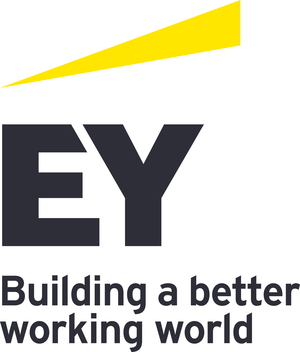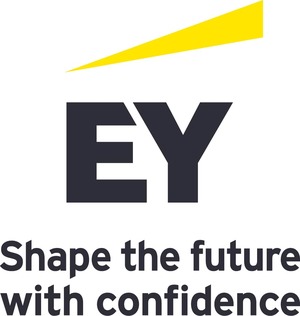From Compliance Specialists to Strategic Advisors: EY/Forbes Insights Survey Finds Internal Audit Role Undergoing Sweeping Changes
IA moves beyond assurance but faces challenges in securing resources for its expanding role
NEW YORK, July 15, 2013 /PRNewswire/ -- A new EY/Forbes Insights survey of more than 500 chief audit executives (CAEs) and audit committee members underscored the need for the internal audit (IA) function to adopt a more prominent role within organizations. While only 28% of survey respondents said that IA currently plays a truly strategic role, 54% indicated that being a strategic advisor will become their primary mandate, signalling a radical shift in focus.
The study, Global Internal Audit Survey: Matching Internal Audit talent to business needs, cited market volatility, financial instability and rapid technological change, coupled with consumer and regulatory demand for increased visibility of a company's operations, are factors putting pressure on internal audit to broaden its scope and move beyond its traditional compliance focus.
"The clear message from the survey is that internal audit functions need to stop thinking about themselves as compliance specialists and start taking on a much larger, more strategic role within the organization," said Brian Schwartz, principal, Internal Audit leader, Ernst & Young LLP. "IA is increasingly being asked by senior management and the board to provide broader business insights and better anticipate traditional and emerging risks, even as they maintain their focus on non-negotiable compliance activities."
This shift may also necessitate that companies rebalance their assurance and advisory audits. Ninety-six percent of survey respondents said that advisory comprises at least some portion of their audit plan. Finding the right balance between the assurance and advisory audits will be critically important as organizations' risk tolerances and strategic goals change.
Other key findings from the survey:
- Skills shortage: The shift toward a more strategic IA focus will require new skills and competencies, but many organizations may not be ready. The top five skills most often found to be lacking are data analytics, business strategy, deep industry experience, risk management, and fraud prevention and detection.
- Emerging markets: With an increasing portion of revenue originating from emerging markets, new regulatory, cultural, tax and talent risks are emerging. Companies will need to deploy additional resources to address these evolving risks.
- Training gaps: "Soft skills" – such as critical thinking, application of business knowledge and the ability to articulate business insights – are becoming as important as purely technical auditing skills. But only 51% of respondents indicated that they have well-defined competency and training requirements for their auditors by level.
- Growing IA budgets: CAEs need additional budget and resources. In the last year, only 28% of respondents have seen their budgets increase, but nearly 39% expect to see an increase in the next 24 months. Moreover, while 30% of respondents have seen the size of their audit functions increase in the last year; 37% expect to see an increase in the next 24 months.
- Quality of talent: For those who have had budget increases, it is becoming easier to recruit more experienced candidates: 45% of respondents indicated that they require candidates to have more than two years of experience at another organization within the same industry.
- Top risks: The top five primary risks that respondents said their organizations are tracking include economic stability (54%), cyber security (52%), major shifts in technology (48%) strategic transactions in global locations (44%) and data privacy regulations (39%).
- Outsourcing and co-sourcing: 82% of organizations that EY surveyed either co-source or outsource a portion of their IA capabilities. This represents an increase of 14% from EY's 2012 survey and 49% from the 2010 survey.
"As corporate leaders demand a greater measure of strategy and insight from their internal audit functions, CAEs will need to move quickly to close competency gaps and ensure that they have the right people in the right place, at the right time," added Schwartz. "If they fail to meet organizational expectations, they risk being left behind or consigned to more transactional compliance activities."
More than 500 CAEs and audit committee members from 20 industries participated in the EY/Forbes Insights survey, which was conducted in May 2013. The majority of the respondents were from organizations with global revenues of $250 million or more.
About EY
EY is a global leader in assurance, tax, transaction and advisory services. The insights and quality services we deliver help build trust and confidence in the capital markets and in economies the world over. We develop outstanding leaders who team to deliver on our promises to all of our stakeholders. In so doing, we play a critical role in building a better working world for our people, for our clients and for our communities.
EY refers to the global organization, and may refer to one or more of the member firms of Ernst & Young Global Limited, each of which is a separate legal entity. Ernst & Young Global Limited, a UK company limited by guarantee, does not provide services to clients. Ernst & Young LLP is a member firm serving clients in the US. For more information about our organization, please visit ey.com.
This news release has been issued by EYGM Limited, a member of the global EY organization that also does not provide any services to clients.
SOURCE EY
WANT YOUR COMPANY'S NEWS FEATURED ON PRNEWSWIRE.COM?
Newsrooms &
Influencers
Digital Media
Outlets
Journalists
Opted In





Share this article